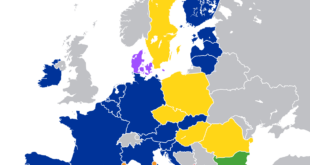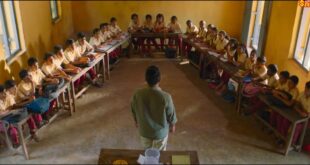- The Ministry of Home Affairs (MHA) convened a conference in late October in the capital, which saw the participation of the Union Home Minister, a few State Home Ministers and police chiefs. West Bengal did not send its highest officials citing its preoccupation with pooja-related issues.
- The Delhi conference was a very important occasion aimed at improving the quality of policing in the country through an exchange of ideas.
- The seriousness of the subject required attendance at the level of the Chief Minister and if some States gave it a miss, it was an unfortunate development and a reflection of the lack of seriousness in matters of governance affecting public order and crime.
- The debate now over the way the Tamil Nadu police have handled the case of a blast in Coimbatore that happened recently, and a possible terror-related plot, also fits in this scene and is relevant to the state of law and order in the State and elsewhere.
- There is a section of influential public opinion which has accused the Tamil Nadu government of having been slothful and delayed handing over investigation of the incident to the National Investigation Agency (NIA).
- This has been rebutted by the State Director General of Police (DGP) who said that his force could not abruptly abandon the investigation and had to do the preliminary investigation to facilitate an NIA take-over.
- The exchange of barbs by the two sides has been an unfortunate and avoidable development and the truth lies in between.
- Rather than getting into a slanging match, what is more important is an examination of the standard operating procedures in place, the identification of lacunae and the initiation of corrective measures.
Patel’s vision
- The first Home Minister of independent India, Sardar Vallabhbhai Patel, would have been dismayed by the politics in Centre-State relations in a matter as serious as policing.
- He placed great value on professional policing, one reason why he insisted on an elitist and well-trained corps such as the Indian Police Service (IPS) which worked alongside the Indian Administrative Service (IAS).
- He was under immense pressure from various quarters, which included his own Congress party, to disband both the Indian Civil Service and IP, but as a distinguished and astute visionary, he was steadfast in his belief.
- Subsequent events proved him right. Despite all their faults, the two all-India services have been a cementing force and have greatly contributed to establishing nationally accepted standards of governance, especially in the area of law and order.
- The passage of 75 years in a free India has more than established that a country of our proportions and diversity will need objective policing by a highly trained police force.
- It is distressing that there is still conflict between the MHA and some States over utilising talent in the IPS and the sharing of resources available in the States.
- Both sides have to be partially blamed for this unfortunate state of affairs. Petulance in personnel management has occasionally affected administration in the Centre and States.
Camaraderie is essential
- It is a no-brainer that in this, New Delhi is the senior partner in what is definitely a collaborative relationship. But there have been actions over the decades that have inflicted many deep wounds on public order.
- These have been situations that have demanded large numbers of well-trained policemen. The Centre has always chipped in with support from the Central Reserve Police Force (CRPF).
- There have also been other outfits such as the Border Security Force (BSF), the Indo Tibetan Border Police (ITBP) and the Central Industrial Security Force (CISF) which have also worked in tandem with the State Police.
- Therefore, it makes sense that the MHA and State Police stop squabbling but explore how best to forge a strong camaraderie.
- We are also witness to frequent spats between States and the Centre over the use or alleged misuse of the Central Bureau of Investigation (CBI).
- Here again both parties have to share the blame. But the basic point that has been ignored is that crime and bureaucratic corruption have inter-State ramifications and only a national agency can bring in a much-needed and wide perspective.
- Insensitive action by a few States to withdraw consent to the CBI to function in a State smacks of politics and vindictiveness, which diminishes the fight against public servant graft.
What is lacking
- ‘Police’ is a State subject under the distribution of powers laid down in the Constitution of India. But that does not mean the Union government has no say in the matter.
- Training and technology are two areas where the Centre does greatly contribute to sharpening police ability to combat terrorism and other major public disturbances.
- The Sardar Vallabhbhai Patel National Police Academy in Hyderabad is a world-class institution that has resources and the professional excellence which are generously available to State police forces.
- Petty squabbling reduces the exchange of ideas and goes to attenuating the police response to difficult situations that require police assistance.
- This is why we need a political leadership that does not get bogged down in petty differences but promotes a free exchange of talent and resources between New Delhi and the States.
- There is no point in blaming a DGP if he or she does not respond to a situation in a professional manner.
- The DGP looks up to the Chief Minister for directions. If the latter is driven by political considerations and gives unprofessional instructions, there is very little that the DGP can do.
- Despite all that the Supreme Court of India has done to insulate the chief of police from political caprice, the truth is that a DGP is perilously placed vis-à-vis the Chief Minister and his or her party men
- . It is lamentable that public opinion in the country has not asserted itself to impart a better sense of policing at all levels of government. I do not foresee any change in this unfortunate situation in the years ahead.
SOURCE: THE HINDU, THE ECONOMIC TIMES, PIB
 Chinmaya IAS Academy – Current Affairs Chinmaya IAS Academy – Current Affairs
Chinmaya IAS Academy – Current Affairs Chinmaya IAS Academy – Current Affairs



